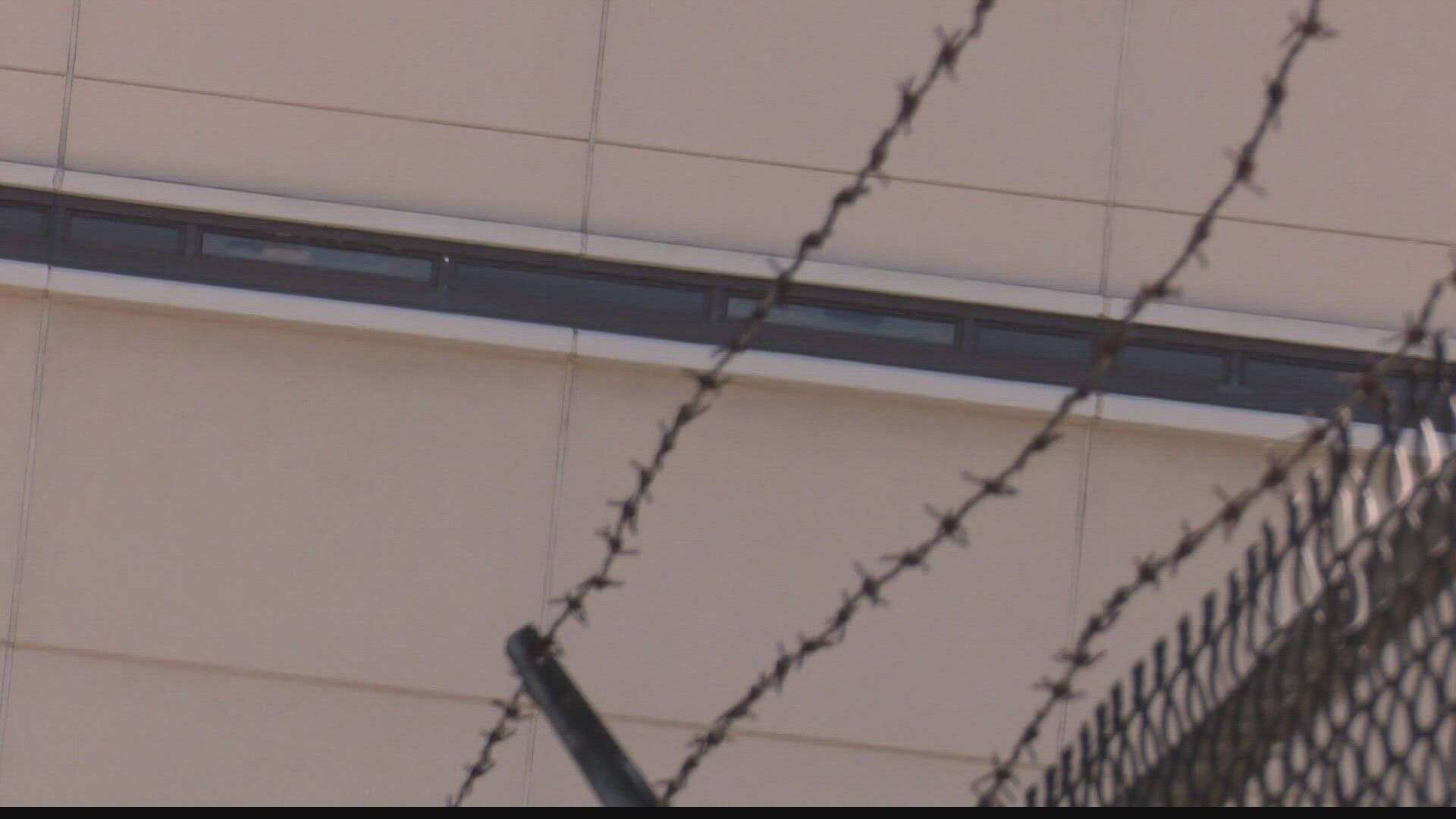ORANGE PARK, Fla. — Florida has the third-largest prison system in the nation with roughly 80,000 inmates across more than 50 prisons.
Not all the inmates have family members who visit faithfully, but when one Orange Park grandmother was no longer allowed to visit her brother, she reached out to First Coast News for help.
Last week the only way that Leverne Hatcher, 82, was able to see her brother David Walden was through the State of Florida Department of Corrections' website.
Currently, Walden is behind bars at Zephyrhills Correctional Institution and has been in and out of prison for more than 25 years. In 1995, Walden was sentenced to 30 years in prison for kidnapping and robbery with a deadly weapon.
Hatcher kept in close contact with her brother and even put money into his inmate account until May when she was suddenly removed from his visitation list.
"My brother Davids whole visitation list was cancelled, and I have been trying since May 11, 2022 when I found out about this to be re-established on their approved visitation list," said Hatcher. "Zephyrhills Correctional Institution tells me they don't have people to approve all the new lists."
Hatcher, whose son is also in prison, knows her way around the system. She called and wrote letters to the prison asking to be put back on her brother's visitation list. After more than two months without being approved, she reached out to First Coast News.
After a series of phone calls and emails over five days from First Coast News to both the prison and the state Department of Corrections Hatcher was informed Tuesday night that she's been approved for visitation. But the whole ordeal has been stressful.
"You love the rest of the family that's with you, and you don't want to cheat them either," said Hatcher. "But there's never a time that there's not a void there for that family member that's not there. It ruins even the ones that's here, you never stop waiting to see them coming through that door, never."
Hatcher's brother was sentenced to 30 years in prison and is scheduled to be released in August 2023. Her son Timothy Adams is scheduled to be released in 2029.
"They've all been raised not to do the things that they did," said Hatcher. "But it got in their system and that's what we're paying for. I won't be happy until he's home. When my brother and son walk in that door, I'll be happy."
Hatcher tells First Coast News she never got a specific answer from FDC why she was not allowed to see her brother for so long.
FDC says since the inmate had been switched to different facilities throughout his time in prison, family members must reapply for visitation after every switch.
The same day that Hatcher was approved to visit her brother in prison the Florida Department of Corrections released the following statement regarding visitation rule changes. **That full statement can be found below.
FDC says it recently initiated a rule development process for "modernizing and defining visitation procedures with the ultimate goal of ensuring the safety and security of all inmates, staff and visitors."
The proposed rules would allow prisons to postpone visitation schedules and cut the number of visitors allowed inside during visiting times to ensure “institutional staffing levels are sufficient to adequately supervise the visitation.”
As of this writing, the proposed rules have not been passed.
Full statement from FDC:
The Florida Department of Corrections (FDC) recognizes the vital importance of visitation during an inmate’s incarceration. Maintaining community and family ties is also an essential component for an inmate to successfully re-enter into society. Our commitment to ensuring ample time for visitation is evident by our recent expansion of visitation at incentivized prisons.
Visitation takes place in both indoor and outdoor settings and children are often present and provided with an array of games and materials to ensure a positive interaction with their incarcerated loved one can take place.
FDC recently initiated a rule development process for modernizing and defining visitation procedures with the ultimate goal of ensuring the safety and security of all inmates, staff and visitors. The proposed implementation of structured and transparent guidelines, specifically as they pertain to modified visitation schedules or suspension of visitation privileges, have undergone extensive review from agency officials. The ultimate goal is to create a reliable, transparent policy to ensure a uniform approach across 50 major institutions, 16 Annexes and other satellite facilities.
As outlined in the proposed rule change, modified visitation and visitation suspensions are clearly defined and will only be considered when absolutely necessary, and only after specific criteria is met. In the event consideration of modified visitation occurs, the proposed rule also includes an extensive and stringent review process by both regional and statewide administrators.
Click this link to see the proposed rule 33-601.722, Visiting Schedule.
This link has other proposed rule changes.

